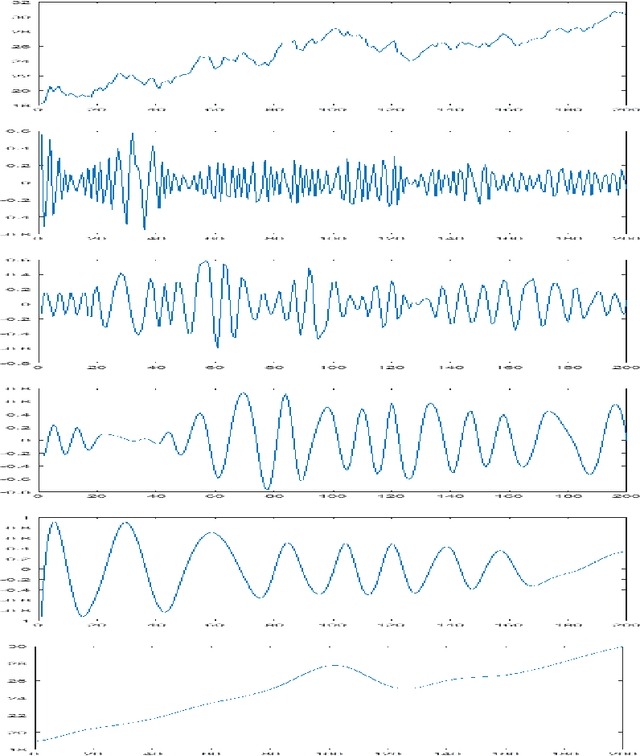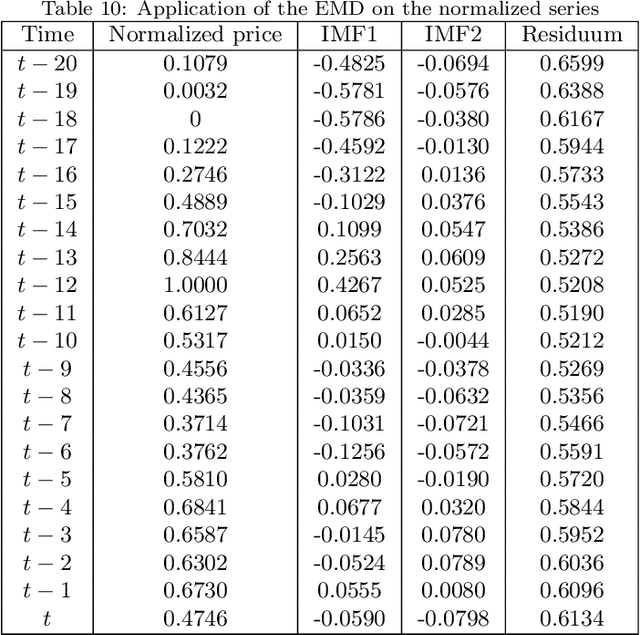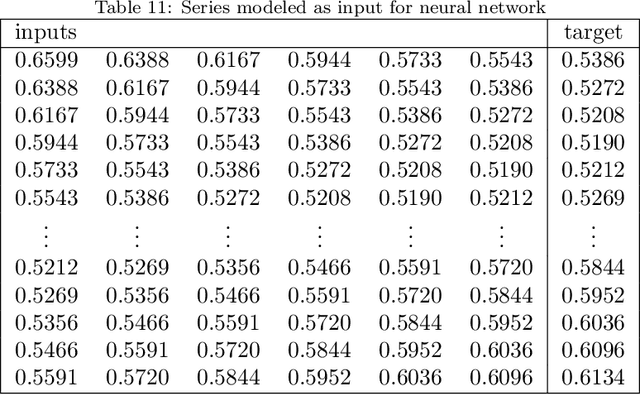Development of a hybrid method for stock trading based on TOPSIS, EMD and ELM
Paper and Code
Jun 14, 2022



Deciding when to buy or sell a stock is not an easy task because the market is hard to predict, being influenced by political and economic factors. Thus, methodologies based on computational intelligence have been applied to this challenging problem. In this work, every day the stocks are ranked by technique for order preference by similarity to ideal solution (TOPSIS) using technical analysis criteria, and the most suitable stock is selected for purchase. Even so, it may occur that the market is not favorable to purchase on certain days, or even, the TOPSIS make an incorrect selection. To improve the selection, another method should be used. So, a hybrid model composed of empirical mode decomposition (EMD) and extreme learning machine (ELM) is proposed. The EMD decomposes the series into several sub-series, and thus the main omponent (trend) is extracted. This component is processed by the ELM, which performs the prediction of the next element of component. If the value predicted by the ELM is greater than the last value, then the purchase of the stock is confirmed. The method was applied in a universe of 50 stocks in the Brazilian market. The selection made by TOPSIS showed promising results when compared to the random selection and the return generated by the Bovespa index. Confirmation with the EMD-ELM hybrid model was able to increase the percentage of profit tradings.
 Add to Chrome
Add to Chrome Add to Firefox
Add to Firefox Add to Edge
Add to Edge